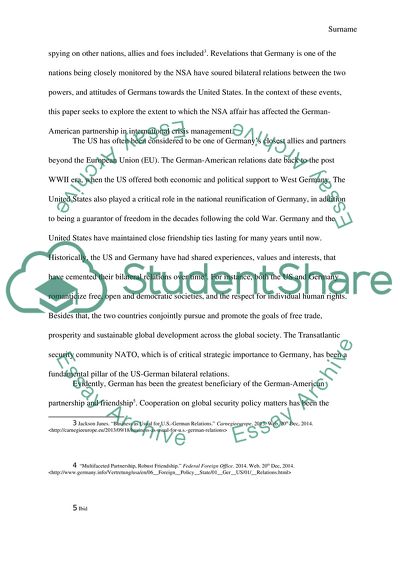Cite this document
(Impact of the NSA Affair on German-American Partnership Coursework Example | Topics and Well Written Essays - 2000 words, n.d.)
Impact of the NSA Affair on German-American Partnership Coursework Example | Topics and Well Written Essays - 2000 words. https://studentshare.org/politics/1854756-to-what-extent-has-the-nsa-affair-affected-the-german-american-partnership-in-international-crisis-management
Impact of the NSA Affair on German-American Partnership Coursework Example | Topics and Well Written Essays - 2000 words. https://studentshare.org/politics/1854756-to-what-extent-has-the-nsa-affair-affected-the-german-american-partnership-in-international-crisis-management
(Impact of the NSA Affair on German-American Partnership Coursework Example | Topics and Well Written Essays - 2000 Words)
Impact of the NSA Affair on German-American Partnership Coursework Example | Topics and Well Written Essays - 2000 Words. https://studentshare.org/politics/1854756-to-what-extent-has-the-nsa-affair-affected-the-german-american-partnership-in-international-crisis-management.
Impact of the NSA Affair on German-American Partnership Coursework Example | Topics and Well Written Essays - 2000 Words. https://studentshare.org/politics/1854756-to-what-extent-has-the-nsa-affair-affected-the-german-american-partnership-in-international-crisis-management.
“Impact of the NSA Affair on German-American Partnership Coursework Example | Topics and Well Written Essays - 2000 Words”. https://studentshare.org/politics/1854756-to-what-extent-has-the-nsa-affair-affected-the-german-american-partnership-in-international-crisis-management.


